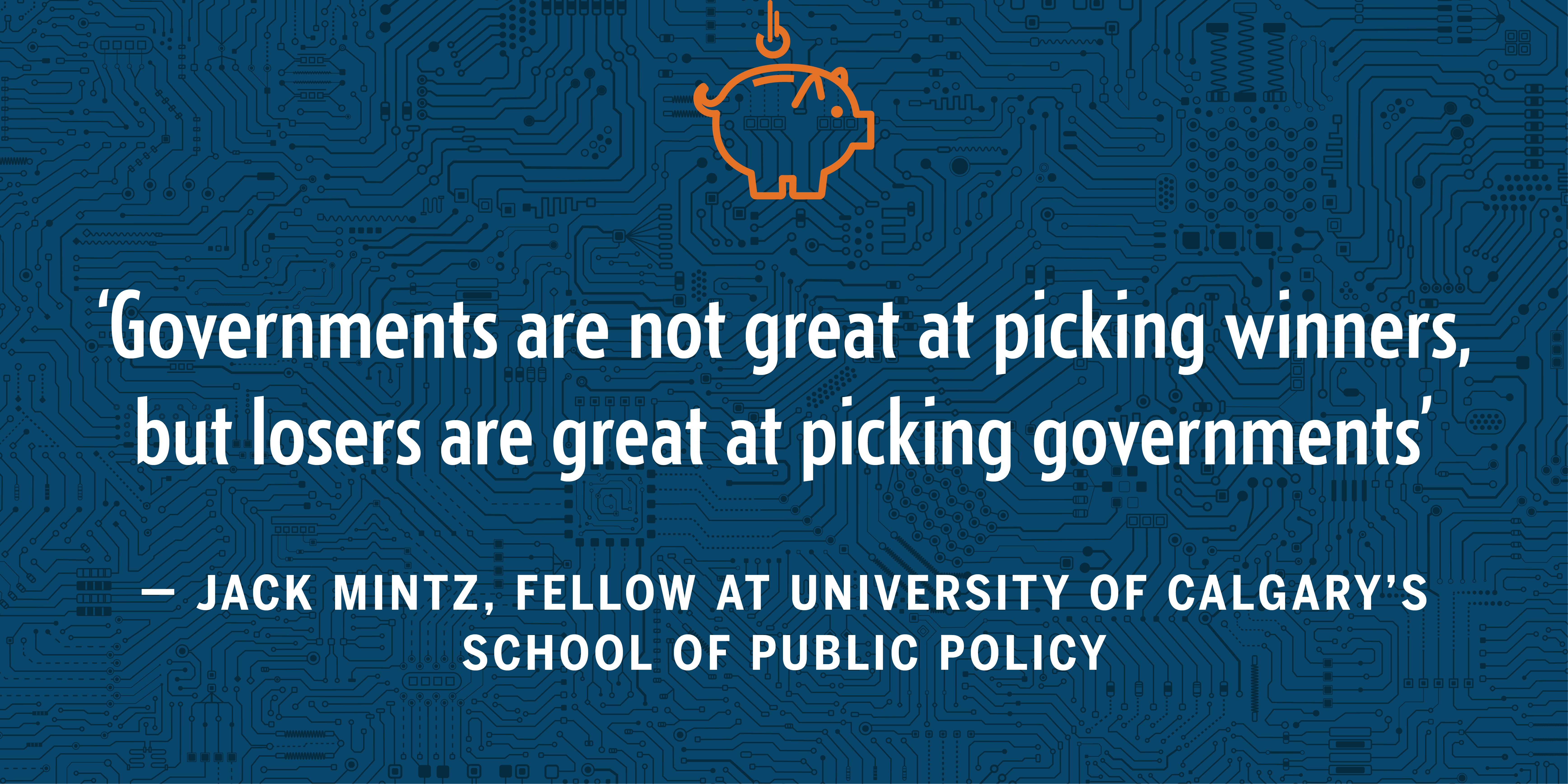Politicians often support “industrial policy,” which means they get to grant special favors to well-connected companies or industries.
But as explained by Professor Burton Folsom, this approach didn’t work very will in the 1800s.
It’s not surprising, of course, that politicians like having the power to grant favors. It makes them feel important.
 But such policies don’t work. At least if our measure of success includes things like competitiveness and efficiency. Or of if we care about the best interests of consumers and taxpayers.
But such policies don’t work. At least if our measure of success includes things like competitiveness and efficiency. Or of if we care about the best interests of consumers and taxpayers.
Which is why is better to be on the correct side of this spectrum. In other words, as far from Soviet-style central planning as possible (I used to cite Hong Kong as an example of laissez-faire, but that may no longer be accurate).
By the way, the video also makes a good point about how the United States was not a laissez-faire paradise back in the 1800s.
While we didn’t have an income tax or a welfare state, there were other forms of intervention, as illustrated by the video, as well as lots of protectionism and regulation.
And don’t forget slavery, which was an especially grotesque anti-market policy.
 The bottom line is that only politicians benefit when government has more power over the economy.
The bottom line is that only politicians benefit when government has more power over the economy.
For the rest of us, the lesson to be learned is that government intervention doesn’t work. Not in the 1800s. Not in the 1900s. And not in this century, either.
If we want more prosperity, we should stick with the tried-and-true recipe for growth.
P.S. Professor Folsom also narrated a video showing how government intervention failed in the 1800s (railroads) and early 1900s (airplanes).
P.P.S. It’s especially disappointing that some self-styled conservatives are supporting industrial policy since – in practice – it means awful policies like Solyndra-style handouts and power-grab schemes like the Green New Deal.

[…] There is a real problem with big business and exploitation, to be sure, but it occurs when companies get in bed with government. […]
[…] There is a real problem with big business and exploitation, to be sure, but it occurs when companies get in bed with government. […]
[…] P.S. There is no such thing as a laissez-faire paradise. Even Switzerland has some bad policies, as does Singapore. And the United States may be capitalist compared to the average nation, but we have many bad policies today (and we had some bad policies in the past). […]
[…] P.S. There is no such thing as a laissez-faire paradise. Even Switzerland has some bad policies, as does Singapore. And the United States may be capitalist compared to the average nation, but we have many bad policies today (and we had some bad policies in the past). […]
[…] more on this, I recommend videos by Burton Folsom, Milton Friedman, and Brian […]
[…] more on this, I recommend videos by Burton Folsom, Milton Friedman, and Brian […]
[…] Both in the past and today, industrial policy is very vulnerable to […]
[…] P.S. I also can’t resist pointing out that there are several small points in Brooks’ column that cry out for correction, such as the anti-empirical assertions that government job training is a good idea or that government intervention in the 1800s produced good results. […]
[…] P.S. I also can’t resist pointing out that there are several small points in Brooks’ column that cry out for correction, such as the anti-empirical assertions that government job training is a good idea or that government intervention in the 1800s produced good results. […]
[…] Even foolish concepts such as socialism and Marxism acknowledge this relationship, though they want the government to be in charge of deciding where to invest and how much to invest (an approach that has a miserable track record). […]
[…] Even foolish concepts such as socialism and Marxism acknowledge this relationship, though they want the government to be in charge of deciding where to invest and how much to invest (an approach that has a miserable track record). […]
[…] Even foolish concepts such as socialism and Marxism acknowledge this relationship, though they want the government to be in charge of deciding where to invest and how much to invest (an approach that has a miserable track record). […]
Very good comparisons in the Prager video
Where can I buy me a Legislator? Some of them look cute!
Reblogged this on Boudica BPI Weblog.